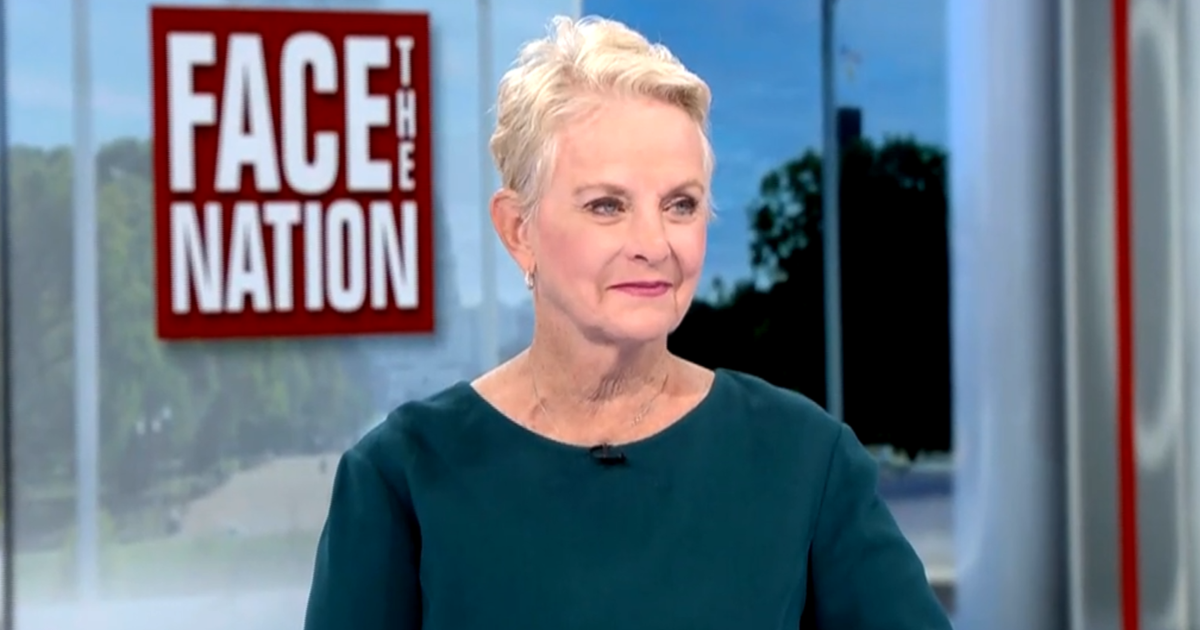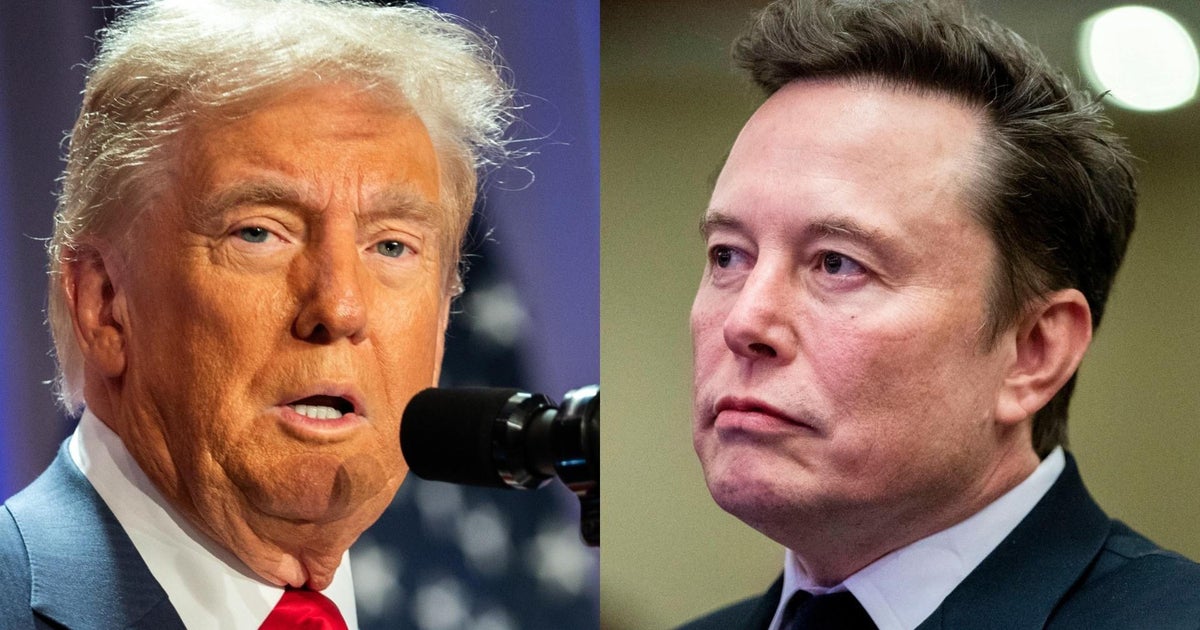CBS News
Transcript: Cindy McCain, World Food Programme executive director, on “Face the Nation,” June 9, 2024

The following is a transcript of an interview with Cindy McCain, World Food Programme executive director, on “Face the Nation” that aired on June 9, 2024.
MARGARET BRENNAN: We’re joined now by the executive director of the United Nations World Food Programme, Cindy McCain, good to have you here in person.
U.N. WORLD FOOD PROGRAMME EXECUTIVE DIRECTOR CINDY MCCAIN: Thank you.
MARGARET BRENNAN: Now overnight, we learned that that U.S. pier off of Gaza that was set up by the military has reopened. It had stopped functioning for a bit. How is it going? Because I know you are helping to oversee distribution.
MCCAIN: Well, right now we’re paused because I’m concerned about the safety of our people after the incidents yesterday. We also- two of our warehouses- warehouse complex, were rocketed yesterday, so we’ve stepped back just for the moment to make sure that we’re in- on safe terms and on safe ground before, before we’ll restart. But the rest of the country is operational. We’re doing- we’re doing everything we can in the north and the south.
MARGARET BRENNAN: How did your locations get rocketed? I imagine you do de-conflict and share your locations with the Israeli military.
MCCAIN: We are de conflicted. I don’t know. That’s a- it’s a good question.
MARGARET BRENNAN: Did you lose any of your–
MCCAIN: We had one man injured, but everything else is fine. Nobody else is hurt. But indeed, it’s- it’s the kind of thing that’s why a ceasefire is necessary. That’s why we need to stop this so that we can get in at scale with our aid and other and other aid from other organizations as well. We can’t continue this in a way, because what almost happened in the north with famine could happen in the south. And so that’s what we’re trying to avoid right now. And it’s been very difficult, just because of the- of what’s going on. You know, we’ve had looting inside the country, we’ve had, you know, various problems around with it. You know, there’s always something going on. It’s very difficult to operate there.
MARGARET BRENNAN: You mentioned just now the full blown famine in the north. When you said that, it got a lot of attention. Prime Minister Netanyahu was asked about your comments by NBC and said quote “Cindy McCain, unfortunately, is misinformed.” The Israeli government’s been putting out pictures of food being brought into Gaza. They dispute there is famine. How does that square with what you are seeing on the ground?
MCCAIN: When I made that comment, my people had seen it on the ground, not only evidence of it, but the actual impact of it. Since then, they’ve allowed us to get more trucks into the north, and so we’re getting much more food in- in up there, and that will stave it off, but- but listen, the bottom line here is- is I make choices every day to take food from the hungry to give to the starving. We need a ceasefire, we need it now so we can feed and this doesn’t happen in the south. We’re right on the edge in the south of the same thing occurring.
MARGARET BRENNAN: You’re on the edge of famine in the south of Gaza?
MCCAIN: Yes. There’s- there’s people that are very hungry and can’t- don’t have access because of the danger, because of- because they’ve been pushed, you know, into the center again. So we want to make sure that we can- can not just get in and feed, but do it at scale. They need more than food, too. It’s water, it’s sanitation, it’s medicine, so it’s all of the above, because famine is not just about starving, it’s about all the other things too.
MARGARET BRENNAN: And I know how difficult I’ve heard it is to help a child with stunted growth. You just said you’re- you’re taking from the hungry to feed the starving. You are dealing with a lot in Sudan as well.
MCCAIN: Yes.
MARGARET BRENNAN: The United States said paramilitary forcers- forces murdered 100 people this past week, including children. And I know the Biden administration says the world’s not paying enough attention to Sudan. What’s happening and are they already at famine?
MCCAIN: Well, Sudan has the real possibility of becoming the world’s largest humanitarian crisis. We cannot get food in, we can barely get food in, we certainly aren’t getting it in at scale, and you see the results of what can happen if people aren’t fed. We’re also coming into the lean season, which makes it very difficult many times for our trucks to even operate if they can get in. We need- we need more- same drill- we need more crossings. We need safe and unfettered access. And that’s the same for Gaza, by the way, safe and unfettered access and making sure that- we that we can get in and make sure we can feed at scale. Once again, it’s about the agreements from various people and various factions and all of this. Bottom line is people are going to starve to death unless we get in there.
MARGARET BRENNAN: We’ve been talking all week long about America’s role in the world, and the U.S. is still the largest donor to the World Food Programme. When you were here last June and we spoke, you said you were trying to encourage China to get involved with funding, but also get their expertise with technology and agriculture. Are they stepping up at all? Are other countries stepping up?
MCCAIN: Other countries are stepping up. You know, it’s not to the scale that it was two years ago, but it- but countries have stepped up, and in the case of Sudan, a few more have stepped up to it. Sudan is a forgotten crisis, and its implications being a destabilizing factor in that region, can have catastrophic effects as it comes down- comes down the line. So it’s really imperative that we get the crossings open, that we have safe access, that the- factions, the various factions, understand that we are, you know, we’re humanitarian, and we need to have the access.
MARGARET BRENNAN: And to your point U.S. intelligence has said that if this isn’t acted upon, that it can contribute to the growth of terrorism–
MCCAIN: Absolutely–
MARGARET BRENNAN: –just like in Gaza.
MCCAIN: –people, people will do anything to feed their families, and if it comes down to it, terrorism may be the choice they have to make.
MARGARET BRENNAN: Cindy McCain, thank you for sharing with us.
MCCAIN: Thank you, thanks for good work.
MARGARET BRENNAN: We’ll be back in a moment.
CBS News
How Trump is influencing decision-making on Capitol Hill

Watch CBS News
Be the first to know
Get browser notifications for breaking news, live events, and exclusive reporting.
CBS News
What comes next in Trump’s Georgia election interference case after Willis’ removal

Watch CBS News
Be the first to know
Get browser notifications for breaking news, live events, and exclusive reporting.
CBS News
A look at the aid efforts inside Gaza amid the Israel-Hamas war

Watch CBS News
Be the first to know
Get browser notifications for breaking news, live events, and exclusive reporting.

